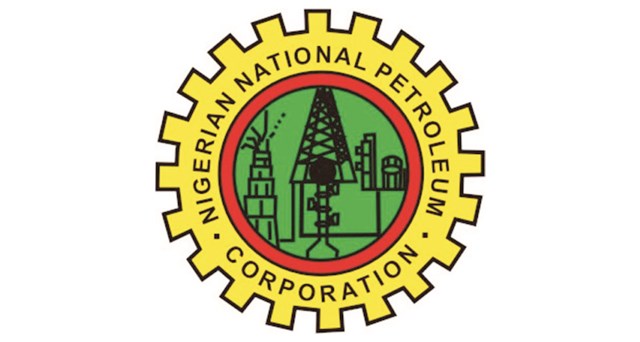Oil & Energy
NNPC To Build Condensate Refinery For Petrol Production

The Nigerian National Petroleum Corporation is in the process of establishing a condensate refinery that is to specifically produce Premium Motor Spirit, also known as petrol.
It was learnt that the corporation had completed the feasibility studies on the refinery and the facility would utilise the huge amount of condensate in Nigeria for the production of petrol.
NNPC’s Group Managing Director, Maikanti Baru, had hinted in January this year that the corporation was working towards establishing some Greenfield refineries including a condensate refinery. He, however, did not provide details on what to expect from a condensate refinery.
But the corporation’s Group General Manager, Greenfield Refineries Department, Sanusi Usman, in a report put together by the NNPC and obtained by our correspondent in Abuja last Friday, revealed that the condensate refinery would particularly focus on the production of PMS, in contrast to what obtained in other conventional refineries.
He said: “Conventional refineries are set up to process crude oil into multiple products such as PMS (petrol), HHK (kerosene), AGO (diesel), fuel oil and others. Because you are dealing with high volumes here, you need to build different units to process and upgrade the quality of the various products.
“But in the case of a condensate refinery, the feedstock is condensate, not crude oil. And it is just one product you will get from it, which is PMS. This means that it does not need to have many units like a conventional refinery. If it is not very large, you can have the units in modular forms.”
According to Usman, Nigeria has a lot of condensates like gas in liquid form, adding that in most cases, it comes out with crude oil, “but there are some cases where we have the condensate being produced alone.
He added: “What we do in Nigeria is to blend some of our crude oil with condensate and sell. But condensate is not calculated as part of a country’s production in OPEC (Organisation of Petroleum Exporting Countries) quota. By including condensate as part of our production, Nigeria is actually losing some volumes of crude oil.”
He stated that this was the reason why the NNPC decided to establish a condensate refinery and remove that component from Nigeria’s crude oil by adding value to it locally.
Usman further explained that the other reason why the oil firm decided to build a condensate refinery was that in Nigeria the problem had always been the scarcity of PMS.
“By composition, condensate is almost like PMS; all you need to turn condensate into PMS is to do some conversion and quality improvement to upgrade it. The kind of equipment needed to do this is not going to be as expensive as the conventional refinery. That is why we settled for condensate refineries,” he stated.
On how far the corporation had gone, Usman stated that his department was already working with the Corporate Planning and Strategy Division of the NNPC to deliver the condensate refinery.
“Right now, we are working in collaboration with the Corporate Planning and Strategy Division on the condensate refineries. We have completed the feasibility studies on them and we believe that they are projects worth pursuing. We believe that with the support of the NNPC management, we can deliver on them,” he said.
Oil & Energy
NERC, OYSERC Partner To Strengthen Regulation

Oil & Energy
NLC Faults FG’s 3trn Dept Payment To GenCos

Oil & Energy
PENGASSAN Rejects Presidential EO On Oil, Gas Revenue Remittance ……… Seeks PIA Review

-
Maritime3 days ago
Nigeria To Pilot Regional Fishing Vessels Register In Gulf Of Guinea —Oyetola
-

 Sports3 days ago
Sports3 days agoGombe-Gara Rejects Chelle $130,000 monthly salary
-
Maritime3 days ago
Customs Declares War Against Narcotics Baron At Idiroko Border
-
Maritime3 days ago
NIMASA,NAF Boost Unmanned Aerial Surveillance For Maritime Security
-

 Sports3 days ago
Sports3 days agoTEAM RIVERS SET TO WIN 4×400 ” MORROW” …Wins Triple jump Silver
-

 Sports3 days ago
Sports3 days agoNPFL Drops To 91st In Global League Rankings
-

 Sports3 days ago
Sports3 days agoNPFL Impose Fines On Kwara United Over Fans Misconduct
-
Maritime3 days ago
NIWA Collaborates ICPC TO Strengthen Integrity, Revenue

